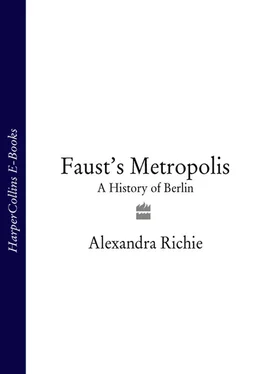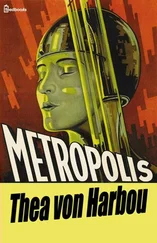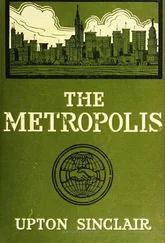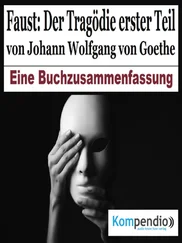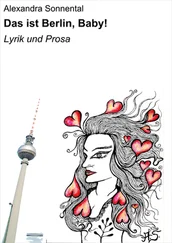Herder was not alone in his search for the meaning of national identity, and one of the most influential converts was Johann Wolfgang von Goethe. Like his contemporaries Goethe had long ridiculed medieval culture and the Gothic style, but during a 1773 visit to Strasbourg Cathedral he changed his mind. Suddenly he decided (incorrectly) that the Gothic was a German invention:
Since I found this building constructed on an old German site and built in the real German age, to be so highly evolved; and since the Master’s name on his modest tombstone was also fatherlandish by sound and origin, the merit of the work emboldened me to change the hitherto ill-famed designation of ‘Gothic’ … and to justify it as the ‘German Architecture’ of our own nation. 86
It was this love of the ‘true’ German past which would come to dominate Berlin Romanticism of the nineteenth century.
Despite its extraordinary diversity one of the most striking features of German Romanticism was the obsession with history and the longing to find a modern German identity buried back in the Middle Ages. Many Romantics, including Clemens Brentano and Achim von Arnim, rediscovered German folk art and fostered the collection of old songs, ballads, folklore and fairy tales. In 1800 Friedrich Schlegel wrote To the Germans , in which he encouraged people to fulfil their cultural mission. 87Romantic notions of the German nation appeared in the work of poets like Novalis; fairytales by the brothers Grimm and Moritz von Schwind contained lavish illustrations of German knights and castles, while paintings like Ferdinand Olivier’s The Fairytale King’s Homecoming and Henry Fuseli’s Thor Battering the Midgard Serpent personified not only the fascination with the occult but also the desire to dig through centuries of ‘foreign influence’ to find that ‘pure’ German culture that was said to have existed in the mists of time. This was linked to the obsession with the Volk , the new love for ‘Fatherland’ and, above all, with the yearning to create a new nation-state which would reflect the glory of the German Empire of the high Middle Ages. As the nineteenth century progressed these national pursuits became more patriotic, and it was George Bernard Shaw who warned of the craving for German greatness hidden in Wagner’s revival of the themes of the lust for flesh, power and gold. 88
The rediscovery of ‘true German’ medieval art and culture was soon put to political use. In his 1808 Addresses to the German Nation given in a Berlin occupied by Napoleonic troops Fichte explained to the German people that they were a race morally superior to all others and that they had a duty to learn about their past through the study of art and architecture, poetry and language. The cry for nationhood intensified after the defeat of France: by the 1830s young people were gathering at events like the Hambach Festival of 1832 to recall the glories of the past and to call for the unification of Germany; medieval societies restored old buildings and held mock historical services and praised the lost glory of the Holy Roman Empire. Attempts to create a national identity took a new form: the writing of national history.
By the mid nineteenth century historians at the new university in Berlin had started to create a state-centred political history to justify Germany’s new powerful role in the world. In the years between the failed attempt at revolution in 1848 and the unification of Germany in 1871 historians from Ranke to Droysen, from Sybel to Treitschke worked to create a nationalist version of the past, outlining the importance – and indeed the superiority – of the traditions and the language shared by all Germans. Ranke had attempted to write a history free of personal bias but his very choice of subject, the rise of the nation-state or Machtstaat , was thinly veiled praise of the extraordinary rise of Prussia within Germany. Treitschke replaced Ranke’s conception of a balance of powers with the idea that individual states were constantly battling with one another for a position of dominance. Related to this was the glorification of war as a German destiny which would allow the nation to fulfil its cultural mission. For Droysen the concept of the Volk was inseparable from the desire to create a German state led by Prussia, while Friedrich Naumann defined nationalism as the urge of the Germans to spread their influence throughout the world. But it was in the years leading up to the creation of Bismarck’s Reich in 1871 that historians began to legitimate Germany’s new aggressive colonial and military policies, the political exploitation of cultural achievements in science, technology and the arts, the isolation of those in society who were considered not at one with the Volk , and above all the promulgation of German Kultur abroad. 89The historian Sybel wrote in 1867 that Germans had to learn about the history of the ancient Volk because without this the nation would be like a tree without roots, and that they must look back to the ancient tribes described in Germania , for ‘the Germans of Tacitus were the Germans in their youth’. 90Tacitus was also used by xenophobes like Houston Stewart Chamberlain to ‘prove’ German racial purity and ancient Germanic national traits from loyalty to honour in battle. History was used to give the new Germans a sense of pride in their nation. The story of Berlin was no exception.
The most important author in the creation of the popular legend of Berlin was the historian Adolph Streckfuss, who coined the expression From Fishing Village to World City , the title of his 1864 history of the city. As a young man Streckfuss had been a democrat and a supporter of the 1848 Revolution, and it was he who popularized notions of the Berliner Unwille. 91 Nevertheless the myth that Berlin had been founded in a barren wasteland in the twelfth century soon became orthodoxy and by 1910 it had become a staple of the Baedeker guide. But why was history rewritten? Why was this dry story taken up with such enthusiasm – a story which ignored so much of the region’s complex and fascinating history? The reason was less than pleasant. Not only had the Berlin area been one of the last areas to be Christianized; unlike ‘truly German’ cities like Cologne or Nuremberg, it had been populated for six centuries not by Tacitus’ Germans, but by the hated Slavs. 92Rather than acknowledge their contribution, the Wendish past was at best marginalized and at worst simply written out of history. 93
The Berlin legend was created in an age when concepts like ethnic purity and the superiority of one race over another were taken for granted by many Germans. It was devised at a time when Germans were being taught that their own national characteristics had evolved through contact with certain geographical areas or with the Heimat (homeland) or even with the ‘soil’; at a time when Germans genuinely believed that they were direct descendants of the pure northern race of Germans described by Tacitus. In our multi-ethnic, relativist world it is difficult to understand the importance placed in the nineteenth and early twentieth centuries on concepts like ethnic, racial or cultural ‘purity’; indeed the notion of a racially ‘pure’ area was ludicrous in a continent in which every corner has been touched by wars, migration, intermarriage, conquest and commerce, and where even the isolated British were a mixture of Celtic, Roman, Norman, Viking and other peoples. This was particularly true of Germany, which for most of its history had been a patchwork of squabbling territories with no clearly defined borders and no real sense of unity. It was perhaps the very lack of a distinct national identity which made Germans so keen to create a coherent history after 1871 and to turn Berlin into a unifying symbol for the entire nation. But to do so meant that history had to be altered to fit contemporary demands. And the first victim was Berlin’s Slavic past.
Читать дальше
